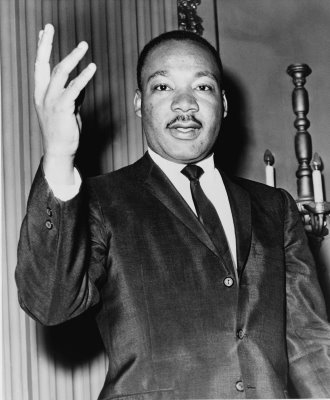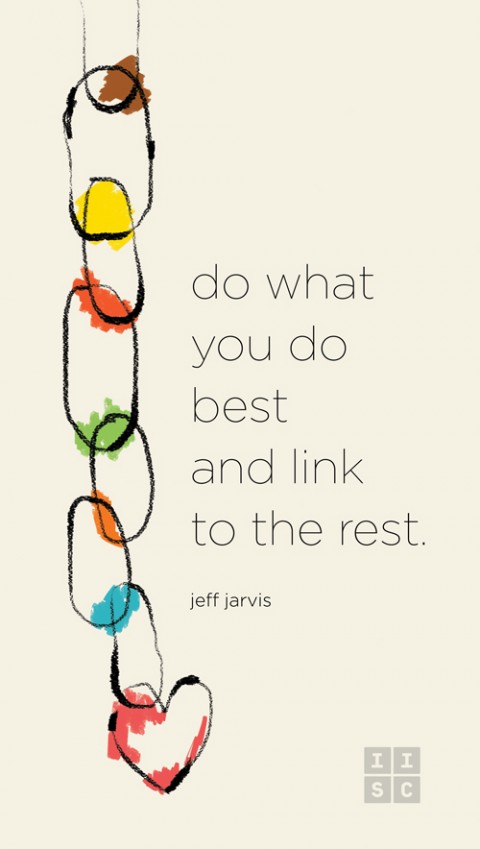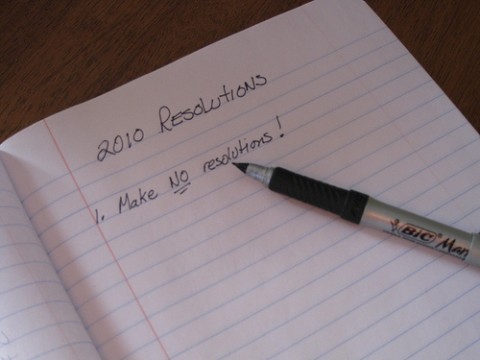Blog
January 19, 2010
Having attended a community MLK Day celebration and listened to several radio programs today, I’m more convinced than ever that we’re missing the point about the meaning of Dr. King.
One student, to his credit, spoke of Dr. King’s opposition to discrimination and linked that to what he saw as injustice in our present day health care system. No one should be discriminated against – and everyone has a right to access health care. Right on! This young man got the point. But, sadly, he’s the only young person I heard today who spoke of justice or attempted to connect Dr. King’s legacy to current day justice issues. I heard several other middle and high school students say things like, “No one wanted to resist Jim Crow until Dr. King gave them inspiration,” or “He opened the doors for hope and then people walked through.”
Not quite. Read More
January 19, 2010
Martin Luther King has been on my mind over the last few days. I’ve been contemplating his prophetic voice, and how every age needs its prophets. I’ve been contemplating the relationship between his belief that “the vision of where we’re going is the reality we have to claim,” Joseph Campbell’s work on the power of myth, and @EmergentCulture’s recent tweet proposing that “we need a new myth for our time, a story that will serve us as we encounter a time period unlike any before.” It is all coming together in ways I’m not fully ready to define. Read More
January 15, 2010

|Public Domain|http://publicdomainclip-art.blogspot.com/2009/01/dr-martin-luther-king-jr.html|

Haiti. I’m sure I’m not the only one who watches with profound sadness at the loss of life and devastation by way of natural disaster and makes direct comparisons to the Hurricane Katrina tragedy and its blow to the precious people of New Orleans.
Read More
January 14, 2010

The photo above was sent to me by my father, who is also the photographer. In fact, he is also the sign maker. This statement currently sits by the roadside in front of my parents’ house in upstate New York. When I asked what sparked this action, he wrote:
Read More
January 13, 2010
I recently read an interesting New York Times article by Nancy Ancowitz that a friend sent me about the ways that extroverts are privileged in meeting processes and work environments. It’s something we talk about at IISC as well. What are the ways that we can design and facilitate meetings so as not to privilege extroverts over introverts – or people with different learning styles – or people with different abilities or aptitudes?
There’s a lot known. And there’s a lot still to discover. Much of generic group process (if not attending to these kinds of things) favors those who freely express ideas in groups. Day-long or multi-day meetings can be great for extroverts, who get energy being in groups – and challenging for introverts, who need alone time to recharge and process internally. Introverts will participate more fully if given time to consider material ahead of time. Extroverts tend to be exactly the opposite – or can quickly scan something in the room and go. Brainstorming is a natural thing for extroverts (who are comfortable putting forth ideas without necessarily knowing how fully “cooked” they are), but not so much for introverts (who tend to want to spend internal time thinking through an idea before putting it out).
Read More
January 12, 2010
Thanks to the Harvard Bookstore, I had the pleasure of joining some of my IISC colleagues at a Daniel Pink talk last week at the Brattle. In Drive, his latest book, Pink argues that aside from the commonly understood motivators of need and desire for reward, we are specially motivated by our desire for autonomy, purpose and mastery. In his talk, Pink pointed out that the baby boomers are now reaching a stage in life that is defined by purpose, the desire to do something meaningful, to contribute to something grater than their selves.
I suspect that many boomers reading this blog have devoted much of their lives to the work of social change and so they might not be dealing with the same angst. Nevertheless it is worth noting that since boomers comprise the largest population bubble, they are the ones that have defined the last few decades. Read More
January 11, 2010

|HamiltonHughesDesign|http://www.hamiltonhughes.com/blog/?p=1139|
In IISC’s first mailing of the year (sent, as is our tradition, in the form of an old-fashioned postcard beautifully designed by Kristen Hughes) we quote Jeff Jarvis, author of What Would Google Do? on the front of the card with his oft-repeated words: “Do what you do best and link to the rest”.
In the accompanying copy, we interpret that phrase as a powerful strategic directive for the sector:
Read More
January 7, 2010

|Photo by katerha|http://www.flickr.com/photos/katerha/4233144961/|
Legion are not just the excuses but the explanations behind the excuses for not living up to our annual New Year’s resolutions. I know these excuses and theorizing about the real reasons for my failings quite well. And yet this year I remain hopeful that I will have more success in honoring my commitments, thanks in part to the work of Robert Kegan and Lisa Lahey. In their book Immunity to Change, the authors lay out a handy set of questions that I believe shed valuable insight on how individuals and groups might hold themselves more accountable to genuine and realistic change aspirations.
In analyzing the pattern of a failed change effort, Kegan and Lahey suggest that we answer the following:
Read More
January 6, 2010
I’ve spent a fair amount of time these last few days exploring the book Presentation Zen: Simple Ideas on Presentation Design and Delivery by Garr Reynolds. It’s an amazing book – and he spends quite a bit of time teaching about how to avoid “Death by PowerPoint.” I’m totally intrigued – and want to rethink (and perhaps more importantly, re-imagine and mess around with) some of the many ways we get information across in presentations – and in the written recordings we make of meetings.
Reynolds rightfully shows that what we do in PowerPoint is often driven by the software itself, rather than by thinking through the most important aspect of the idea we’re trying to get across. We follow the template and create slide after slide of bulleted lists of text that say what we’re already saying. But here’s the question: what is the most important thing we are trying to say? And how can we work with images to bring our words to life? Read More
January 5, 2010
I am just returning from two weeks in Europe, the longest I’ve spent there. If you’ve ever been to Paris you know how strikingly glorious it is. Geneva and Amsterdam are also special places, with their own distinctive beauty, their own way about them. While there I had the opportunity to visit some amazing museums and I’m truly moved by the experience.
I’m struck by the thought that so much of the intentional beauty that I witnessed emerged out of social movements, intentional social projects – they were proposals for looking at the world, for ways of being in it. Paris seems to have evolved through multiple story lines about its destiny and its place in humanity. The shift from the art of the Louvre to the modern art of the Pompidou, and the biographical development of Van Gogh’s art all make movement very obvious. We can see the developmental shifts, the exploration, the experimentation and the provocation, the passionate search for meaning or definition, the eternal question. Read More
January 4, 2010
Every year at this time, like most of you, I make several commitments which are generally to increase my health and well-being, deepen my spiritual life and learn myself a few inches back from the learning edge. This years’ learning commitment is to learn all things technological i.e. everything from powerpoints to Twitter and everything in between. As it stands now I know just enough to get by, develop bad habits and to be dangerous across multiple platforms.
And, like the book falling off the shelf as if guided by some cosmic know-it-all, I picked up the latest Orion Magazine the other morning to find an interview with Kevin Kelly, founder of Wired Magazine where he puts forth the idea that technology is holy. Read More
December 31, 2009
One of my favorite poetry finds this year comes from Judy Sorum Brown, whose piece “Fire” ties in nicely with a theme that has been developing for me over the past twelve months. In addition to Judy’s work, I am grateful for the writings of Larry Dressler, which have helped me to embrace the metaphor of “fire tending” (not firefighting) as part of the work we do as leaders, facilitators, consultants, teachers, and perhaps as parents.
Larry’s book Standing in the Fire points out that when we work with groups of people we are to some extent always playing with fire. Fire can burn, of course, but it can also purify and renew, it can serve as fuel, it can warm us, and it can make us uncomfortable enough to get moving. The key is first not to be afraid of the heat. From there it all comes down to the choices we make about how to build and feed the flames in light of what it is we are trying to collectively accomplish.
Read More






